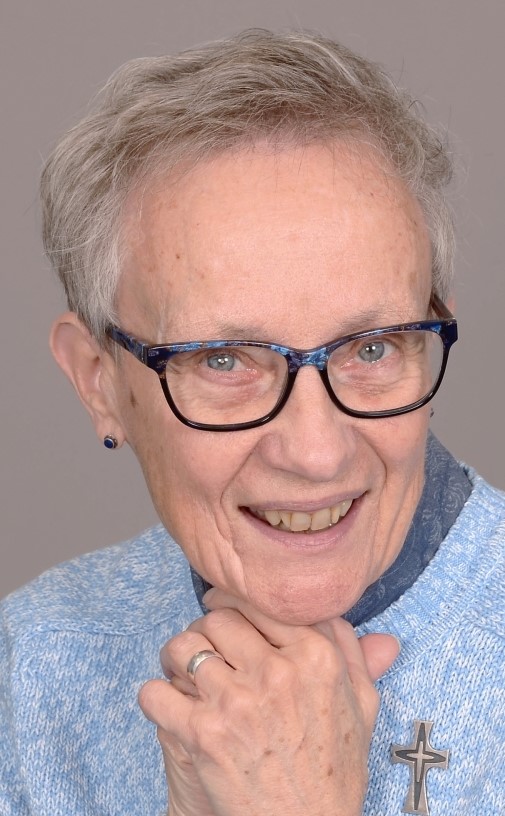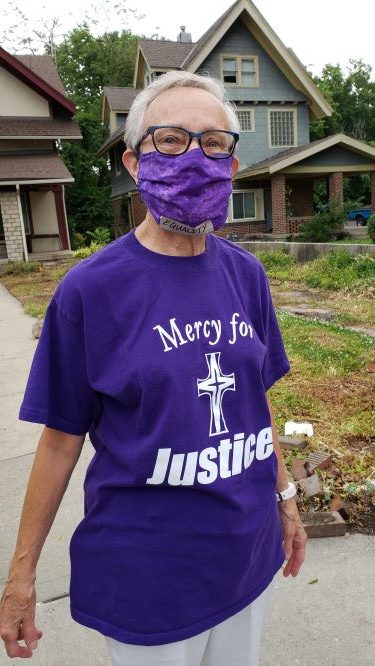By Deborah Herz
Kris Wade was only 18 years old when she left home with $30 in her pocket. She boarded a train to Chicago, Illinois, and, within minutes of arriving at Dearborn Station, was approached by a man who offered her a place to stay and something to eat.
“I’d spent all my money on the train ticket and had only $1 left, so I followed him,” Kris says. “He bought me a hot dog and took me to a two-bedroom apartment on the third floor of a neighborhood in the city’s North end.”
The apartment turned out to be a hub for drug dealers and small-time gang members who were running a prostitution ring from the building.
“I came from a loving family of fabulous parents and was an honor roll student and president of the debate team in high school,” Kris says. “But I wanted to be on my own. Within a day of leaving home, I fell in with drug dealers. I was at their mercy for a long time.”
Kris managed to escape, but not before witnessing a murder. “I have my parents to thank for taking me back,” she says. “Unlike other women, I have a family that loved and cared about me. Many women in similar circumstances have no home and no one to turn to.”
Now 69, Kris is one of the lucky ones. After escaping her abductors, she put herself through college, earned a degree in criminal justice and became a fierce advocate for homeless female trafficking survivors, working closely with Sisters of Mercy who are also engaged in the fight. “What happened to me is as prevalent today as it was 50 years ago,” she says. “Human trafficking has been going on for thousands of years.”
A Global Problem

With an estimated 40 million victims worldwide recruited or abducted into forced labor and prostitution, the statistics are grim and overwhelming. Estimates cited by the youth-led movement DoSomething.org suggest that internationally, only 0.4 percent of human trafficking cases are identified. The vast majority go undetected and, according to The Daily Signal conservative news outlet, less than 0.2 percent of trafficking victims are rescued.
“‘Rescued’ isn’t a term we use when talking about the survivors of human trafficking,” says Sister Jeanne Christensen of Kansas City, Missouri, who first met Kris almost 20 years ago. “The most we can do is intervene to help these women get themselves out. Even if a women manages to free herself, chances are she’s already been arrested for prostitution and is a felon. No one will hire her or rent to her, so how is she supposed to support herself? Facing poverty and homelessness, many have no choice but to go back.”
Jeanne and Kris raise awareness about the perils of human trafficking by making presentations to church groups, high schools and organizations such as the United States Conference of Catholic Bishops.
“Kris literally saves lives,” Jeanne says. “She intervenes on behalf of victims as a member of the district attorney’s task force. Our judges respect her immensely, and she’s tireless in her efforts. She goes to court, gets women out of jail and finds them shelter.”
Before COVID-19 walloped Missouri, you could find Kris in the toughest sections of Kansas City, dropping off medicine, bus cards and food and making sure women weren’t sleeping on the streets. “I stand in awe of her and what she does,” Jeanne adds. “How she doesn’t burn out is beyond me.”
Jeanne, a cofounder and board member of U.S. Catholic Sisters Against Human Trafficking and the justice advocate against human trafficking for the Sisters of Mercy West Midwest, says, “Kris is the only advocate I know who works with transgendered women, mainly women of color, who are being murdered at alarming rates. If we had a world full of people like Kris, we might be able to stop this. I don’t know what we would do without her.”

A self-described “wild and crazy hippie kid,” Kris takes responsibility for what happened to her and firmly dismisses any idea that she’s a candidate for sainthood. But the evidence suggests otherwise.
In 2008, she and Sister Donna Ryan cofounded the Justice Project Kansas City, a Mercy Ministry Grant Fund nonprofit that helps women living in poverty to navigate the criminal justice system. Kris also partners with Amethyst Place, a 46-bed transitional housing program supported by Mercy Ministry Grants that provides protection for women and children experiencing homelessness, and The Willow Tree, which offers refuge and meals. Since 1987, Mercy has awarded some $15 million in Ministry Grant funds for programs focusing on education, health care and social services, which includes support to women, children, the elderly and people experiencing homelessness for medical care, housing, meals and more.
“We can’t abandon these women who want to free themselves from a life of addiction and prostitution,” Kris says. “We have to help, no matter what. But we’re not just about giving people homes, food, shampoo and underwear. Systemic changes can only be made through policy and legislation.”
The Sisters of Mercy have been a blessing for Kris. “What I love about them is not only their compassion, but their willingness to take on social justice issues,” she says. “Their work benefits everyone by addressing why women end up on the streets in the first place. They’re fearless.”
Also known as 'modern slavery,' human trafficking is the illegal trade in human beings through recruitment or abduction by means of force, fraud or coercion for the purposes of forced labor, debt bondage or sexual exploitation. Trafficked victims may: • Be forced to live in subpar conditions (living in the same place as they work; living in a space that does not have heat, running water, or electricity; living with many people sharing the same, small space). • Not be allowed to talk to anyone alone or without supervision. • Be coached on how to respond to inquiries from others including police and other authority figures.
Source: safehorizon.org
Raising Awareness
Sister Rita Connell is one of those fearless women. A founding member of the Coalition on Human Trafficking in Omaha, Nebraska, Rita started the coalition with five other sisters. Supported by the Mercy Ministry Grant Fund, the nonprofit trains citizens to realize how pervasive trafficking is, recognize the signs and report the crime.
“For the past five years, we’ve focused on training hospitality and housekeeping workers in hotels and motels, known trafficking hotspots,” Rita says. “A newer program is focusing on security officers. The keys to ending this are education and collaboration among law enforcement, social services, lawmakers and the public.”
Rita is convinced grassroots efforts are working. “When we started this, people didn’t even know what human trafficking was,” she says. “Today, parts of our training program are used in other areas of the country. The positive energy to end this keeps growing, so generations after us can pick up where we left off.”
The distance from Rita’s doorstep to Sister Therese Randolph’s apartment in San Mateo, California, is a little more than 1,600 miles, but their mission is the same: to help human trafficking victims. The problem is especially prevalent in California because of its southern border with Mexico and huge agricultural labor force.
“Human trafficking is everywhere, both in the United States and abroad,” Therese notes. “One of our lawyers here in the Central Valley put it this way: If you have an interstate highway and a motel nearby, you have human trafficking. Any city with airports, ports, freeways and tourism is a hub for both forced labor and sex traffickers.”
A member of the Stop Slavery Coalition: Northern California Catholic Sisters Against Human Trafficking, Therese is also the former chaplain for a battered women’s shelter in Kansas City. “The underlying causes of how both men and women become victims are very similar,” she says. “The internet and social media only exacerbate the problem by luring young adults into situations where they become victims. The average age that young people are seduced into sex trafficking is 13 or 14. Both girls and boys are affected, and it’s happening in our schools and on our streets. It’s everywhere.”
In 2016: • An estimated 40 million people were victims of modern slavery, including 25 million in forced labor and 15 million in forced marriage. • For every 1,000 people, there were 5.4 victims of modern slavery. • For every 1,000 adults, there were 5.9 victims. • For every 1,000 children, there were 4.4 victims. • Women and girls make up 71% of victims. • One in four victims (25%) are children.
Source: Global Estimates of Human Trafficking by the International Labour Office, Walk Free Foundation, International Organization for Migration/The UN Migration Agency, 2017.
Keeping the Faith
When the problem seems too overwhelming, Therese’s faith keeps her going.
“Human trafficking became illegal on the national level only 20 years ago,” she notes. “I’m heartened to see that awareness of the problem has grown since then. California, like some other states, now has a law requiring that human trafficking be taught in schools starting in the seventh grade. Many hotels, motels and airlines post a hotline for victims to call, and organizations such as Truckers Against Trafficking train employees to recognize and report trafficking cases.”
While these may seem like minor victories, Therese says they matter in a big way. “Whatever we can do, no matter how small, will help.”
Many Sisters of Mercy have made a world of difference, including Sister Charlotte Young, a retired university nursing professor who lives in Farmington Hills, Michigan, some 25 miles northwest of Detroit.
For the past two years, Charlotte has mentored a 26-year-old woman named Abby, a victim of both labor and sex trafficking. The two are close and check in with each other every day.
“I’m so proud of Abby,” Charlotte says. “I tell people she’s my goddaughter. Before she came to Sanctum House [a two-year residential treatment program that has benefited from the Mercy Ministry Fund], Abby struggled with substance abuse. She’s been clean for two years now, is enrolled in a college nursing program, made dean’s list and was recently promoted to a management position at McDonald’s.”
Charlotte laments the fact that fewer than 750 shelter beds are available in the entire United States for trafficking victims. “At Sanctum House, we’re at capacity now with 12 women,” she says. “Many are vulnerable, have come from dysfunctional families and just want someone to love them. They can’t believe someone truly cares about them without expecting anything in return.
Noting that Abby soon will graduate from Sanctum House, Charlotte has no doubt that her goddaughter will succeed no matter what she does. “I’m absolutely not worried about her,” Charlotte says. “Abby’s success is all due to her determination to succeed.”
Abby disagrees. “If it weren’t for Charlotte, I wouldn’t be where I am today,” she says. “She loves me, cares about me and gives me great advice. Both Sanctum House and the Sisters of Mercy are my guardian angels.”
¡Viva! Mercy gratefully acknowledges the many sisters not mentioned in this article who work tirelessly to end human trafficking. To learn more, read “Human Trafficking, Heartrending Tragedy” by Sister Jeanne Christensen in the January/February 2018 issue of ¡Viva! Mercy, here.
Deborah Herz is a Mercy associate and freelance writer working out of Narragansett, Rhode Island, and Naples, Florida. She can be reached at deborahherz@outlook.com.